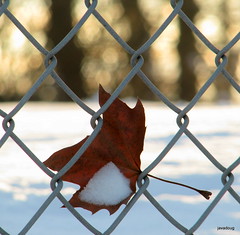 beyond the fleeting flicker of the moment it was intended, never grants the bearer a feeling beyond a mere moment's euphoria and eventually fades, like the best of dreams, into the mundane aspects of conscience reality. Yet we hungrily cling to that memory, that moment of passion hoping to preserve and inflate the lingering abstract qualities of the encounter into an everlasting painting hung upon the wall, always there to see. Well beyond the seat where I sit is a stage, arrayed with chairs, filled with talented musicians, led by a brilliant maestro; and they are there today to play for me the very best of classical music, composed throughout the ages. My temporal embrace begins with the entrance of conductor Manfred Honeck with a decisive grin and they begin.
beyond the fleeting flicker of the moment it was intended, never grants the bearer a feeling beyond a mere moment's euphoria and eventually fades, like the best of dreams, into the mundane aspects of conscience reality. Yet we hungrily cling to that memory, that moment of passion hoping to preserve and inflate the lingering abstract qualities of the encounter into an everlasting painting hung upon the wall, always there to see. Well beyond the seat where I sit is a stage, arrayed with chairs, filled with talented musicians, led by a brilliant maestro; and they are there today to play for me the very best of classical music, composed throughout the ages. My temporal embrace begins with the entrance of conductor Manfred Honeck with a decisive grin and they begin.Beethoven was younger than Mozart, yet somehow I think of Mozart as being always young. Mozart's untimely death at the age of 35 somehow reverses their ages in my mind. We remember Beethoven as older based on all the portraits we see. Tonight the ordering is also switched. First up is Beethoven's Symphony No. 1 from the year 1800, one of my favorites -- the scherzo is filled with wit and humor, and the finale gets me going with its toe tapping alacrity. Honeck conducts with a variety of gestures of his baton and hand including leveling, waving, extending, snapping, flowing and his signature thumb and index finger O. When he stands straight you know everything is going just right, and it was - a marvelous performance.
Mozart wrote Piano Concerto No. 16 in 1784 when he was about 28 years old. Lars Vogt did this composition much justice, it's not often played, and deserves just this kind of performance. The piano parts were witty and filled with a kind of rhythm not really heard in other Mozart piano concertos in my opinion. It was a kind of jazz like rhythm, yet the underlying joyful pomp ever present in any Mozart composition was ever present as well.
It's always a chore to keep in mind the temporal aspects of history. In my embrace of the classical compositions presented tonight, I reflect on the time-line, and wonder what Mozart would have thought of Beethoven's works, if he had lived longer and was able to hear the compositions of his younger contemporary. Or what would Beethoven have thought of the works of Respighi? And I've wondered what it would be like if I could climb into a time machine, go back and experience the classics as they were first presented.
Respighi's The Fountains of Rome and The Pines of Rome are programmatic in nature, yet stand as wonderful works of pure music in their own right. The Pines of Rome will forever be engrained in my mind as the music for the whales in Disney's Fantasia 2000, which I used to watch again and again with my daughter when she was young, yet today, listening as I did, I can perceive both the context Respighi intended, and musically without any program at all.
At the close of my temporal embrace I was no longer caught. The applause for Manfred Honeck the Pittsburgh Symphony Orchestra waded on, and I realized at that moment that I was suddenly released from my embrace, as if waking from a dream, with the closing chords of Respighi's Pines of Rome trumpeting marvelously in my memory and on my consciousness, and as I grasped to hold that lingering moment, I relished what I had, and I knew that I would experience it again, the next time I visit Heinz Hall to see and hear the Pittsburgh Symphony Orchestra.





No comments:
Post a Comment